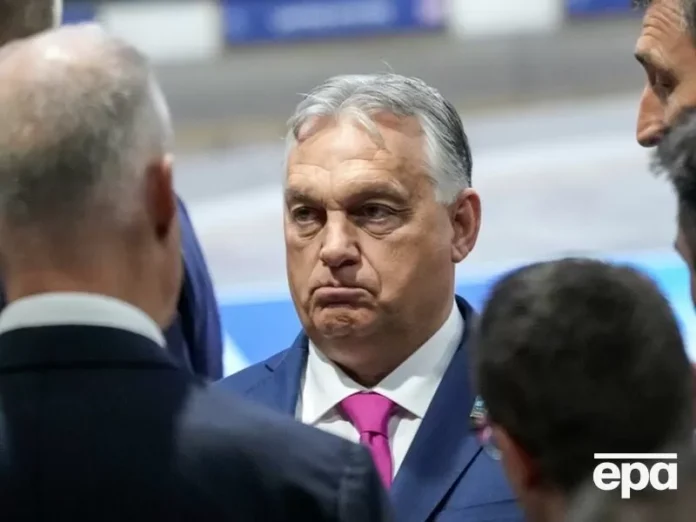Hungary’s decision to reject Ukraine’s request for military support and its opposition to the country’s accession to NATO was met with disappointment by many member nations at the recent summit held in Washington. According to Bloomberg, sources revealed that Hungary’s stance was firm and it stood by its decision despite pressure from other allies.
The summit, which took place on July 13th, was a crucial meeting for NATO as it sought to discuss key issues, including the ongoing conflict in Ukraine. However, Hungary’s refusal to provide military aid to Ukraine and its objection to their NATO membership was a major setback for the country.
The decision comes as a surprise, considering that Hungary has been a strong supporter of NATO and has been a member of the organization since 1999. In fact, the country has been a vocal advocate for expanding NATO’s membership to include other Eastern European countries, such as Ukraine.
So why did Hungary suddenly change its stance?
One possible reason could be the country’s increasingly close ties with Russia. In recent years, Hungary has strengthened its economic and political relationship with Russia, causing concern among other NATO member nations. This move has caused tension within the alliance, as some see it as a betrayal of NATO’s shared values and principles.
However, according to Hungarian officials, their decision is not a result of their relationship with Russia, but rather a strategic move to protect their own interests. Hungary’s Foreign Minister, Péter Szijjártó, stated that their position is based on the principle of non-interference in other countries’ internal affairs. He also emphasized that Hungary does not want to get involved in the conflict between Ukraine and Russia.
This explanation, however, has not been convincing enough for other NATO members, who see Hungary’s decision as a lack of solidarity and unity within the alliance. Ukraine, in particular, expressed disappointment and concern over Hungary’s refusal to provide military support, especially as the country continues to face aggression from Russia.
Some experts also believe that Hungary’s stance is a reflection of the country’s larger political aspirations. The Hungarian government has been criticized for its authoritarian policies, and their recent actions may be an attempt to gain favor with Russia and other authoritarian regimes.
Despite the disappointment and criticism, it is important to note that Hungary’s decision is not legally binding and does not prohibit other NATO member states from providing assistance to Ukraine. However, it does call into question the unity and strength of the alliance, as well as the effectiveness of its decision-making process.
In conclusion, Hungary’s rejection of Ukraine’s request for military support and its opposition to the country’s NATO membership has caused tension and disappointment within the alliance. While the decision may be based on Hungary’s own strategic interests, it has raised concerns and calls into question the unity of NATO. The ongoing conflict in Ukraine remains a crucial issue for the alliance, and it is important for all member nations to work together to find a solution and support each other in times of need.

